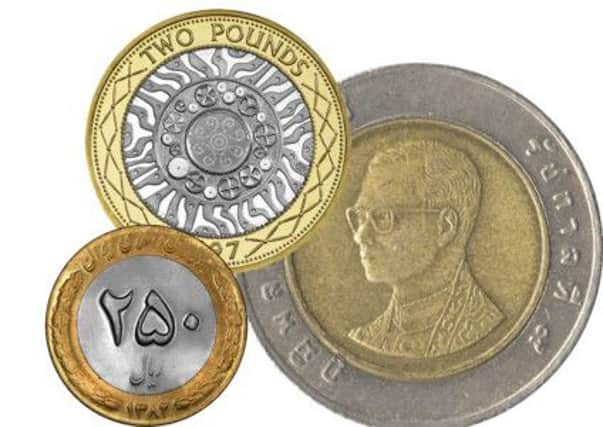Morrisons bans £2 coins because its tills can’t tell them from Iranian pennies


The Bradford-based grocer said it would not accept £2 coins at the self-service checkouts of certain stores until an “upgrade” had taken place to root out foreign substitutes, which are often worth far less.
South Yorkshire-based Morrisons customers have reported seeing signs placed in store about the issue.
Advertisement
Hide AdAdvertisement
Hide AdThe supermarket, which yesterday announced 2,600 job cuts in a bid to modernise its stores and and reduce management tiers, said customers could still pay with £2 coin at manned checkouts.
At first, only stores in the West Midlands were said to be affected but it is now thought that the problems may be more scattered.
Morrisons has declined to say exactly how many stores are affected or where they are, for “security and commercial reasons”.
A Morrisons spokesman said: “A handful of our stores have experienced foreign currency being passed off as £2 coins at self checkouts. While we fix the issue, some of those stores have temporarily stopped them accepting any £2 coins.
Advertisement
Hide AdAdvertisement
Hide Ad“Customers are still free to use them at all manned checkouts. We apologise for any inconvenience it is causing but don’t expect the fix to take long.”
Coins which have similar characteristics to the £2 coin include the Iranian 250 rial, which is worth around one pence, and the Thai ten baht, which is worth about 18 pence. The 2 euro coin, worth around £1.60, also has a similar appearance.
Jonathan Hilder, CEO of the Automatic Vending Association (AVA), which represents 80% of the turnover in the UK vending market, said that in general machines recognise coins by their shape.
He said that to his knowledge, there have been no widespread problems with machines failing to properly recognise the £2 coin.
Advertisement
Hide AdAdvertisement
Hide AdMr Hilder said: “The £2 coin, being a bi-metal coin, is particularly difficult to forge.”
Earlier this year, the Treasury unveiled plans for a new 12-sided £1 coin which will have a bi-metallic construction similar to the £2 and be harder to forge when it is introduced in 2017.